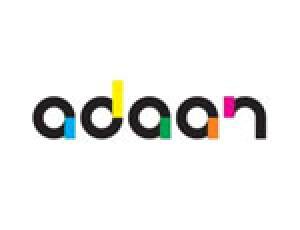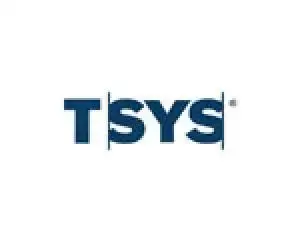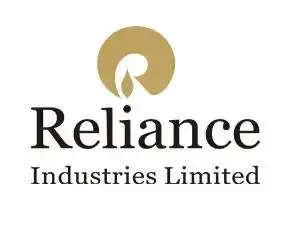
Get a Quote
Get a Quote and Find Services to Fit Your Needs 50000+ Satisfied Clients
5000+ Licenses & Registration
15 Branches across India
75 Years + Combined experience
Satisfied Clients
Services
Years Combined Experience
Get Started!

























Payment Gateway License Process
A Payment Gateway License is an RBI-issued certification that allows the applicant to establish and run a payment gateway. A Payment Gateway, in simple terms, is a gate through which electronic transactions occur. It establishes a secure line between the customer and the seller. And then, it provides a confidential path through which the customer can enter their details and complete the transaction. Throughout this process, the payment gateway securely connects the customer's digital payment wallets or bank accounts to the seller's bank accounts, allowing the transaction to occur only then. Once the transaction is complete, the gateway takes its appropriate payment gateway charges in India.
.png)
The payment gateway process takes place in three stages:
.png)
There are two components of an Online Payment Gateway:
Those with the Payment Gateway license RBI first get into an agreement with the merchant that uses the gateway.
It's a security system that verifies user information without peeking into it. In doing so, it authenticates the information without compromising the user's Credit card/ debit card/ net banking information.
.png)
This license is a registration certificate given by the RBI to proposed Payment Gateway companies in India so that they can create and run a payment gateway. RBI promotes this license to:
Following are the payment gateway providers for whom it's mandatory to get the payment gateway license
.png)
1.png)
The following are the eligibility criteria to get the payment gateway license:
1.png)
The following are the documents required for Payment Gateway registration:
The software code of the payment gateway system and its testing report must be certified software testing agency. If you're worried about the high Payment Gateway Registration fees, don't be. If you're opting to start a complex business encompassing such a wide demographic, you'd already be in capable hands with us.
At Registrationwala, it's our motto to minimize the extra professional payment gateway license RBI cost and maximize the input required for online payment gateway registration. So, if you want to start a payment gateway for India without worry, contact our experts. We make payment gateway registration in India easy.
3.png)
How to get a Payment Gateway license in India? Well, to make it easy to get a payment gateway license, India has formulated the following steps for the payment gateway registration process:
Apply for a Payment Gateway license. File the payment gateway application via FORM A addressed to the Chief Manager of the Department of PSS.
Don't forget to pay the payment gateway registration cost along with the application.
Once you file a Payment Gateway license application, RBI will start its assessment. It will check the details you've mentioned in your applications.
Once RBI finds that you've provided the correct application, they start scrutinizing the application based on the following points:
Step 5: Grant of Certification
Once the RBI authorizes your application, it will send you the payment gateway certification for conducting payment gateway business in FORM B. Once the application is filed, the RBI will take 6 months to grant the payment gateway certificate unless there are issues with the application form.
The RBI has issued some important Security-related recommendations for the licensed Payment Gateway Systems that they must adhere to. Some of these recommendations are discussed in this article in the following subheadings.
The Payment Gateway Licensed System (PGS) must conduct a comprehensive security risk assessment of its people, IT, business process environment, etc. This assessment must be done to identify risk exposures with remedial measures and residual risks.
These security checks can be one of the following:
The Payment Gateway Licensed System must implement the best data security standards and practices, such as:
The PGS must report security incidents or cardholder data breaches to the RBI within the stipulated timeframe. The PGS must also submit monthly cyber security incident reports with root cause analysis and preventive actions undertaken to the RBI.
The Payment License System must undertake a comprehensive security assessment during the merchant onboarding process to ensure the merchants adhere to these minimal baseline security controls.
The Payment Gateway Licensed System must carry out and submit the following to the IT Committee:
The Payment Gateway system must review the Board-approved information security policy annually. The security policy must consider aspects the following aspects:
The Payment License System must frame an IT policy for regular management of IT functions and ensure detailed documentation of procedures and guidelines is implemented. In addition, the strategic plan and policy must be reviewed annually.
.png)
The major role of the Board or the Top Management of the Payment License system must involve the following:
The Payment License system must create an IT Steering Committee with representations from various business functions as appropriate.
The Committee then must assist the Executive Management in implementing the IT strategy approved by the Board. Lastly, It must have well-defined objectives and actions.
The Payment License system must establish and maintain an enterprise information model to enable application development as well as decision-supporting activities consistent with the Board-approved IT strategy.
The model shall facilitate the optimal creation, use, and sharing of information by a business in a way that maintains integrity and is flexible, functional, timely, secure, and resilient to failure.
The Payment License system must also prepare a comprehensive Cyber Crisis Management Plan approved by the IT strategy committee. It must include components such as the following:
We provide end-to-end Assistance for services related to Payment Gateway License:
So, do you want to start a payment gateway in India? Get legally ready by obtaining a Payment Gateway license with our help.
Q1. What is a Payment Gateway in India?
A. A Payment Gateway, in simple terms, is a gate through which electronic transactions take place. It establishes a secure line between the customer and the seller.
Q2. Is there a payment gateway charge in India to be paid for using it?
A. The gateway takes its appropriate payment gateway charges in India once the transaction is complete.
Q3. What are the components of a Payment Gateway System?
A. There are two components of an Online Payment Gateway:
Q4. What are the kinds of Payment Gateway providers that require this license?
A. The following are the payment gateway providers for whom it's mandatory to get the payment gateway license:
Q5. What are payment gateway charges?
A. Payment Gateway charge or Payment Gateway price is the additional charge levied on the purchaser for using the gateway while he is transferring money to the online merchant for making a purchase.

★ ★ ★ ★ ★
I very much appreciate the fact that you guys possess tremendous knowhow of private limited company incorporation. You have exhibited professional and respectful manner towards my query and I would seriously recommend you guys to all the folks looking for outstanding business services.

★ ★ ★ ★ ★
Thanks to their support, I got my trademark successfully. I highly recommend their services for anyone needing help with their intellectual property. The person assigned to me was very cooperative and helpful.

★ ★ ★ ★ ★
Thanks to their support ragistrationwala team, I got my IP-1 license successfully and special thanks to Miss.Kanishka for your great and timing support !!!!!! I have archived my goal one step forward... Thanks for the entire team....

★ ★ ★ ★ ★
Really helped a lot in getting my both VNO licenses. Great experience working with the team and very humble team, thanks for providing the vno license on time.

★ ★ ★ ★ ★
I had a good time working with Registrationwala. Good team. I would recommend their services to others.

★ ★ ★ ★ ★
It was extremely great service of Registrationwala consulting firm, and this firm is providing the best services and worry about the client's required services along the client's satisfaction.

★ ★ ★ ★ ★
Superb Experince! Within no time the trademark registration was on.Highly professional team. I am very much Impressed with the prompt response and efficiency.Thank you.

★ ★ ★ ★ ★
We had taken ISP license from registration wala and the supporting person is very helpful to taken that license his communication and his work is satisfactory and thanks for those services

★ ★ ★ ★ ★
I sincerely appreciate your prompt support in helping me get the access license so quickly. Your professionalism and efficiency are truly commendable. Thank you for going above and beyond to assist me. Keep up the great work!